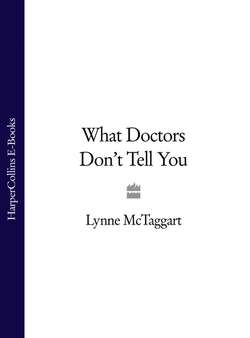Читать книгу What Doctors Don’t Tell You - Lynne McTaggart, Lynne McTaggart - Страница 26
3 Prenatal Testing: Dead Certainty
ОглавлениеThe moment you first miss a period, medical science informs you that you will not be able to give birth unless you are subjected to a large round of prenatal tests, all supposedly designed to ‘put your mind at rest’. In reality, these tests have the opposite effect. According to medical science, for instance, my daughter, Caitlin, could have had Down’s syndrome. If I had listened to the experts I might have aborted her or lost her through a high-tech, test-induced miscarriage. The very thought sends a chill down my spine.
When I got pregnant, I firmly resisted all recommendations to have ultrasound monitoring and amniocentesis despite being a reasonably elderly primagravitas (37) at conception, because of my fears about their known and unknown risks.
Nevertheless, when I was 16 weeks’ pregnant my doctor, who respected my wish to avoid amniocentesis, suggested that I take a routine prenatal alpha-fetoprotein (AFP) test. The test measures the level of AFP produced by the foetus and present in the mother’s bloodstream.
It was designed to detect babies with rare neural tube defects such as spina bifida, as evidenced by a ‘high’ reading. Although the test wasn’t designed for it, low readings are now thought to be associated with an increased risk of Down’s syndrome.
‘Just to put your mind at rest,’ my doctor cajoled.
Since it only involved taking a blood sample from my upper arm rather than invading the womb as all other prenatal tests do, I let myself be talked into it. After all, I was having a fantastic pregnancy. I was convinced my baby was perfectly healthy. Now I’d know for sure. What was there to lose?
A week or so later, my doctor’s secretary rang and asked me to phone him. ‘What for? Did the test come back?’ I asked apprehensively.
‘That’s what he wants to discuss with you.’
For an agonizing half-hour I stayed on the phone waiting for him to get on the line. When he did, it was to report the words I’d never even thought to consider:‘The results of the AFP test are borderline low.’
I burst out in hysterical sobbing, and only after five minutes had calmed down sufficiently to ask what I already knew that meant.
‘There’s a slight possibility of Down’s syndrome.’
I don’t remember much of the rest of the conversation. My doctor tried a few gentle reassurances – we could find out for sure through a combination of amniocentesis and ultrasound; this combination of tests had a high degree of accuracy; the other borderline situations he’d investigated had turned out all right.
Finally I managed to say that I would call him back. I had a secretary drag my husband out of a meeting to tell him the news, and after he rushed home we considered our options. We could run through the battery of tests with ultrasound and amniocentesis, and risk miscarrying a perfectly healthy baby or damaging it through the test – both known risks of the procedure. We then discussed the ramifications of a test result confirming that I was carrying a handicapped child.
We would be faced with the decision of aborting a five-month-old foetus – not some lima-bean-sized tadpole, but a perfectly formed, nearly viable human being. It meant going through labour and giving birth to a dead baby or, if he wasn’t expelled in that manner, having the body removed, piece by piece.
I looked down at my bump. For me, that simply was not a possibility I could contemplate, no matter how deformed this child might be, which made the entire AFP exercise an utter waste of time. If you are not prepared to abort a handicapped foetus, there is no point in going through with the tests.
I was appalled by medicine at that moment for creating a situation that could only be resolved through the high-tech measures I had so wished to avoid. If I had never had the AFP test, I thought, I would never have had to consider subjecting my baby to a battery of possibly damaging tests just to bury the doubts raised by the first test result.
In the end, to our minds, there was only one reasonable path: to ignore the test and to listen to our hearts, which told us that the baby was fine.
This is what we chose to do. I called my doctor to tell him, and my husband and I never spoke about the test again. Sure enough, it turned out that we had been traumatized for nothing. The test was wrong. At the end of my term, out came our perfectly normal, healthy baby.
Despite the murmurs from your obstetrician about the very best in medical technology, most prenatal testing is little more than ritualistic nonsense.
